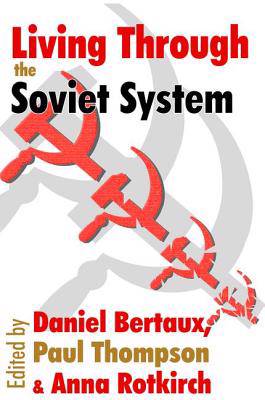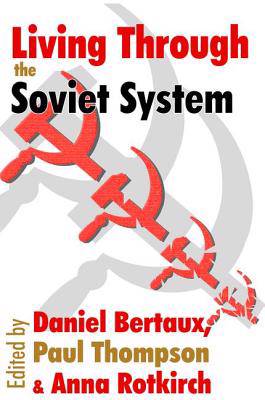
- Afhalen na 1 uur in een winkel met voorraad
- Gratis thuislevering in België vanaf € 30
- Ruim aanbod met 7 miljoen producten
- Afhalen na 1 uur in een winkel met voorraad
- Gratis thuislevering in België vanaf € 30
- Ruim aanbod met 7 miljoen producten
Omschrijving
For a period of over seventy years after the 1917 revolutions in Russia, talking about the past, either political or personal, became dangerous. The situation changed dramatically with the new policy of glasnost at the end of the 1980s. The result was a flood of reminiscence, almost nightly on television, and more formally collected by new Russian oral history groups and also by Western researchers. Daniel Bertaux and Paul Thompson both began collecting life story and family history interview material in the early 1990s, and this book is the outcome of their initiative. Living Through the Soviet System analyzes, through personal accounts, how Russian society operated on a day-to-day level. It contrasts the integration of different social groups: the descendents of the pre-revolutionary upper classes, the new industrial working class, or the ethnically marginalized Russian Jews. It examines in turn the implications of family relationships, working mothers, absent fathers and caretaking grandmothers; patterns of eating together, and of housing; the secrecy of sex; the suppression of religion; and the small freedoms of growing vegetables on weekends on a dacha plot. Because of its basis in direct testimonies, the book reveals in a highly readable and direct style the meaning for ordinary men and women of living through those seven dark decades of a great European nation. Because of the centrality of Soviet Russia to the history of the twentieth-century world, this book will be of interest to a wide range of readers. It will be of importance to students, researchers and teachers of history and sociology, as well as specialists in East European and other communist societies.
Specificaties
Betrokkenen
- Auteur(s):
- Uitgeverij:
Inhoud
- Aantal bladzijden:
- 286
- Taal:
- Engels
- Reeks:
Eigenschappen
- Productcode (EAN):
- 9781138527294
- Verschijningsdatum:
- 6/10/2017
- Uitvoering:
- Hardcover
- Formaat:
- Genaaid
- Afmetingen:
- 152 mm x 229 mm
- Gewicht:
- 548 g

Alleen bij Standaard Boekhandel
Beoordelingen
We publiceren alleen reviews die voldoen aan de voorwaarden voor reviews. Bekijk onze voorwaarden voor reviews.









